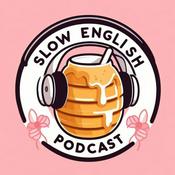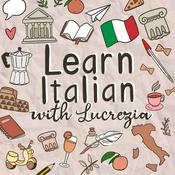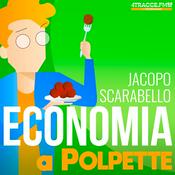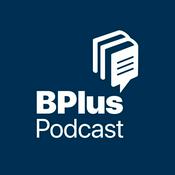274 episodi

Soybean Oil: Obesity, Fatty Liver Disease, Gut Health, IBS & Colitis | Frances Sladek | 269
21/12/2025 | 1 h 50 min
Send us a textMetabolic effects of soybean oil and linoleic acid on obesity, fatty liver, and liver function.Topics Discussed:Historical trends in soybean oil use: Consumption increased dramatically since the 1960s due to farming subsidies, now providing over 10% of calories for many Americans, far exceeding the 1-2% required biologically.Soybean oil’s effects in mice: Diets with 8-10% linoleic acid cause obesity, fatty liver, and diabetes over weeks, unlike coconut oil diets; effects persist even after diet switch unless combined with fasting.Role of HNF4 protein: This conserved liver transcription factor binds linoleic acid, regulating gene expression for metabolism; variants shift between carbohydrate and fat processing, with imbalances linked to fatty liver and cancer.Oxylipins from linoleic acid: Conversion in liver drives obesity; mice unable to produce them resist weight gain on soybean oil, suggesting these metabolites are key culprits.Vitamin B1 & soybean oil: Diets deplete B1 in liver and blood, contributing to obesity; supplementation with B1 analogs prevents weight gain, unlike beef tallow diets which preserve B1 levels.Gut & microbiome impacts: Soybean oil alters gut bacteria, potentially reducing B1 production and increasing permeability, leading to inflammation; farm animals fed soybean meal pass effects to consumers.Broader health implications: Reanalysis of old human studies questions linoleic acid’s heart benefits; focus on reducing processed foods and seed oils, while noting olive oil’s advantages from historical contexts.Practical Takeaways:Limit processed foods and seed oils like soybean to reduce linoleic acid intake, aiming for 1-2% of calories; read labels and opt for olive oil or home-cooked meals.Incorporate intermittent fasting, such as 12-16 hours without eating daily, to help reverse obesity effects from high-linoleic diets, based on mouse reversibility studies.Choose grass-fed or naturally fed animal products to avoid indirect soybean oil exposure from feed, potentially preserving nutrient levels like vitamin B1.Monitor diet when traveling or changing habits, as shifts in oil types can affect medication metabolism via liver enzymes.About the guest: Frances Sladek, PhD is a professor whose research focuses on the nuclear receptor HNF4 and the health impacts of dietary fats, particularly soybean oil.*Not medical advice.Support the showAffiliates: Lumen device to optimize your metabolism for weight loss or athletic performance. MINDMATTER gets you 15% off. AquaTru: Water filtration devices that remove microplastics, metals, bacteria, and more from your drinking water. Through link, $100 off AquaTru Carafe, Classic & Under Sink Units; $300 off Freestanding models. Seed Oil Scout: Find restaurants with seed oil-free options, scan food products to see what they’re hiding, with this easy-to-use mobile app. KetoCitra—Ketone body BHB + electrolytes formulated for kidney health. Use code MIND20 for 20% off any subscription (cancel anytime) For all the ways you can support my efforts

Dietary Fat & Light Regulation of Circadian Biology | Louis Ptacek | 268
17/12/2025 | 1 h 24 min
Send us a textHow seasonal changes in light and dietary unsaturated fats affect circadian rhythms in mammals.Topics Discussed:Evolutionary context of circadian rhythms: All organisms have adapted to Earth’s 24-hour day for survival, with internal clocks slightly offset and adjusted by environmental cues.Molecular clock mechanism: Involves a feedback loop where proteins turn on/off genes, lasting ~24 hours, regulated by phosphorylation and degradation for timing precision.Genetic variations in sleep: Families with mutations in clock genes like PER2 cause extreme morning lark behavior, altering protein stability and period length by hours.Light entrainment: Morning light shortens human clocks (average 24.2 hours) to match 24-hour days; seasonal day length changes require gradual adjustments.Food & metabolic links: Seasonal food scarcity/abundance affects clock via glucose and fatty acids competing for protein modifications, as shown in diabetic mouse models.Role of unsaturated fats: Paper finds MUFA/PUFA ratios in diet alter phosphorylation of clock proteins, speeding or slowing adaptation to winter/summer light cycles in mice.Modern environmental impacts: Artificial light extends “daytime” signals, while constant food access erases seasonal patterns, contributing to obesity and diabetes risks.Jet lag & adaptations: Sudden time shifts mimic seasonal experiments; high-sugar/fat intake may phenocopy genetic effects to aid adjustment, though not recommended for health.Practical Takeaways:Expose yourself to morning natural light to help synchronize your internal clock and improve daily energy.Consume main meals during daylight hours and avoid late-night eating to align with natural metabolic rhythms.Limit evening screen time to reduce artificial blue light disrupting sleep onset.Consider varying diet seasonally, favoring diverse, whole foods to mimic natural availability patterns for better health.About the guest: Louis Ptacek, MD is a neurologist and professor at the University of California, San Francisco. He researches inherited neurological diseases and sleep traits, including genetic variations causing extreme early rising.Related Episode:M&M 237: Circadian Biology: Genetics, Behavior, Metabolism, Light, Oxygen & Melatonin | Joseph Takahashi*Not medical advice.Support the showAffiliates: Lumen device to optimize your metabolism for weight loss or athletic performance. MINDMATTER gets you 15% off. AquaTru: Water filtration devices that remove microplastics, metals, bacteria, and more from your drinking water. Through link, $100 off AquaTru Carafe, Classic & Under Sink Units; $300 off Freestanding models. Seed Oil Scout: Find restaurants with seed oil-free options, scan food products to see what they’re hiding, with this easy-to-use mobile app. KetoCitra—Ketone body BHB + electrolytes formulated for kidney health. Use code MIND20 for 20% off any subscription (cancel anytime) For all the ways you can support my efforts

Ketosis & BHB: Metabolic Diet Therapies, Brain Cancer & Exercise | Dominic D'Agostino | 267
12/12/2025 | 1 h 41 min
Send us a textHow ketosis and ketogenic diets work and how these tools can improve metabolic health, brain function, and even cancer management.Topics Discussed:Organs have different fuel preferences: brain strongly prefers glucose, heart prefers fatty acids, skeletal muscle is flexible and likes fat/ketones.Humans evolved with high metabolic flexibility; regular ketosis was normal for ancestors, but today most people never experience it.“Keto flu” is largely glucose withdrawal plus electrolyte/sodium loss; proper salt and hydration prevent most symptoms.Classic medical ketogenic diet is ~90% fat (historically saturated); modern versions often use more monounsaturated fats, MCTs, and higher protein.Saturated fat is not inherently atherogenic in the context of weight stability or caloric deficit; excess calories from any source can dysregulate metabolism.Exogenous ketones (e.g. BHB) provide energy, reduce ROS, stabilize membranes, increase inhibitory tone (GABA), and have hormone-like signaling effects independent of diet.Cancer cells often show Warburg effect (damaged mitochondrial respiration → heavy reliance on glycolysis); lowering glucose and raising ketones can stress cancer cells.True keto-adaptation for athletic performance requires 6–12 weeks; after that, elite athletes can match or exceed prior high-carb performance at sub-maximal and endurance efforts.Practical Takeaways:Therapeutic carbohydrate restriction (50–100 g/day for many people) plus occasional fasting or ketone supplements can restore metabolic flexibility with far fewer side effects than strict keto.Prioritize whole-food fats (eggs, fatty fish, beef, olive oil, butter/lard) and minimize processed keto products loaded with seed oils.Supplementing BHB (salts or esters) or MCT oil can ease the transition into ketosis, boost ketones without strict dieting, and may support brain and metabolic health.Regularly check basic blood markers (glucose, lipids, electrolytes) and consider an OmegaQuant test; optimizing metabolic health is one of the strongest preventable steps against cancer, neurodegeneration, and heart disease.Supplemental Ketone (BHB):KetoCitra—Ketone body BHB with potassium, calcium & magnesium, formulated with kidney health in mind. Use code MIND20 for 20% off.*Not medical advice.Support the showAffiliates: Lumen device to optimize your metabolism for weight loss or athletic performance. MINDMATTER gets you 15% off. AquaTru: Water filtration devices that remove microplastics, metals, bacteria, and more from your drinking water. Through link, $100 off AquaTru Carafe, Classic & Under Sink Units; $300 off Freestanding models. Seed Oil Scout: Find restaurants with seed oil-free options, scan food products to see what they’re hiding, with this easy-to-use mobile app. KetoCitra—Ketone body BHB + electrolytes formulated for kidney health. Use code MIND20 for 20% off any subscription (cancel anytime) For all the ways you can support my efforts

Seed Oils, Chronic Inflammation, Heart Health & Marijuana | Ganesh Halade | 266
07/12/2025 | 1 h 30 min
Send us a textHow dietary polyunsaturated fats, especially omega-6 from seed oils, influence inflammation & heart health.Topics Discussed:Polyunsaturated fatty acids (PUFAs): Omega-6 from seed oils like safflower and corn can convert to pro-inflammatory molecules, while omega-3s produce resolving ones; imbalance biases toward chronic inflammation.Inflammation regulation: Acute inflammation aids healing but requires active “on” and “off” signals from lipid mediators; chronic inflammation arises from excess omega-6, delaying resolution.Heart health & diet: High omega-6 diets worsen post-heart attack outcomes in mice by elevating pro-inflammatory lipids.Evolution & historical context: PUFAs are essential but naturally balanced in pre-industrial diets; modern processing skews ratios, contributing to diseases, as shown in early rat experiments needing minimal fats for survival.Aging & lifestyle factors: Excess omega-6 exacerbates inflammation in older mice; sleep, exercise, and balanced fats are crucial for metabolic health and enzyme function in processing lipids.Cannabis & omega-6 interaction: In mice on high omega-6 diets, CBD-rich cannabis smoke reaches the heart quickly, suppresses immune response, and weakens cardiac strain, unlike in balanced-diet controls.Genetic models: FAT-1 mice converting omega-6 to omega-3 show better healing and neuroprotection; FAT-2 mice doing the opposite exhibit liver fibrosis and metabolic issues, highlighting omega-6 excess harms.Practical Takeaways:Balance omega-6 and omega-3 intake by reducing seed oils in processed foods and increasing sources like fish or algae to support inflammation resolution and heart health.Monitor and adjust fat intake with age, as older individuals are more sensitive to omega-6 excess leading to immune dysregulation.Avoid combining high omega-6 diets with smoking, as it may impair immune and cardiac responses based on animal data.About the guest: Ganesh Halade, PhD is a cardiovascular scientist and associate professor at the University of South Florida Morsani College of Medicine.*Not medical advice.Support the showAffiliates: Lumen device to optimize your metabolism for weight loss or athletic performance. MINDMATTER gets you 15% off. AquaTru: Water filtration devices that remove microplastics, metals, bacteria, and more from your drinking water. Through link, $100 off AquaTru Carafe, Classic & Under Sink Units; $300 off Freestanding models. Seed Oil Scout: Find restaurants with seed oil-free options, scan food products to see what they’re hiding, with this easy-to-use mobile app. KetoCitra—Ketone body BHB + electrolytes formulated for kidney health. Use code MIND20 for 20% off any subscription (cancel anytime) For all the ways you can support my efforts

Evaluating Science: Clinical Trials, Epidemiology, Preclinical Studies & Mendelian Randomization | George Davey Smith | 265
02/12/2025 | 1 h 26 min
Send us a textMethods & challenges of establishing causal relationships in health research, emphasizing epidemiology, randomized trials, and genetic approaches.Topics:Epidemiology: Studies disease influences using observational designs like case-control and prospective cohorts, plus trials, to identify patterns and test hypotheses.Hierarchy of evidence critique: Rejects rigid pyramids favoring RCTs, as all studies can be biased; advocates triangulation integrating varied data types for robust conclusions.RCT strengths & weaknesses: Randomization balances confounders, but issues like poor blinding, attrition, or subversion can undermine results; large samples may yield spurious precision if biased.Confounding & reverse causation: Examples include yellow fingers and lung cancer (both from smoking) or early atherosclerosis inflating CRP-disease links; hard to fully control statistically.Nutrition epidemiology: Observational studies often overstate benefits (e.g., vitamin E for heart disease), leading to failed trials; incentives favor new findings over revisiting errors.Mendelian randomization: Uses genetic variants as proxies for exposures (e.g., ALDH2 for alcohol metabolism) to mimic randomization; reveals no heart benefits from alcohol, unlike observational data.Negative controls: Tests implausible outcomes (e.g., smoking and murder) or exposures (e.g., paternal smoking in pregnancy) to check for confounding artifacts.Evidence triangulation: Combines diverse studies with different biases (e.g., cross-cultural comparisons) for causality; applied to dismiss HDL-raising drugs despite initial promise.Practical Takeaways:Scrutinize health claims by checking for negative controls or variety in evidence sources to avoid mistaking correlation for causation.For personal decisions like alcohol intake, consider genetic studies showing risks at all levels, and aim for moderation or abstinence based on overall evidence.When evaluating supplements or diets, prioritize trials over observational data, and question media hype that ignores confounding factors.About the guest: Dr. George Davey Smith, MD, DSc is a professor of clinical epidemiology at the University of Bristol and director of the MRC Integrative Epidemiology Unit.*Not medical advice.Support the showAffiliates: Lumen device to optimize your metabolism for weight loss or athletic performance. MINDMATTER gets you 15% off. AquaTru: Water filtration devices that remove microplastics, metals, bacteria, and more from your drinking water. Through link, $100 off AquaTru Carafe, Classic & Under Sink Units; $300 off Freestanding models. Seed Oil Scout: Find restaurants with seed oil-free options, scan food products to see what they’re hiding, with this easy-to-use mobile app. KetoCitra—Ketone body BHB + electrolytes formulated for kidney health. Use code MIND20 for 20% off any subscription (cancel anytime) For all the ways you can support my efforts
Altri podcast di Scolastico
Podcast di tendenza in Scolastico
Su Mind & Matter
Ascolta Mind & Matter, Learning English Conversations e molti altri podcast da tutto il mondo con l’applicazione di radio.it
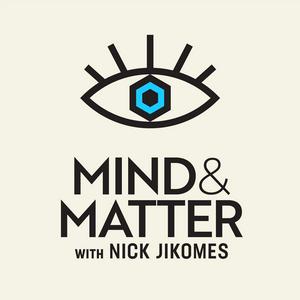
Scarica l'app gratuita radio.it
- Salva le radio e i podcast favoriti
- Streaming via Wi-Fi o Bluetooth
- Supporta Carplay & Android Auto
- Molte altre funzioni dell'app
Scarica l'app gratuita radio.it
- Salva le radio e i podcast favoriti
- Streaming via Wi-Fi o Bluetooth
- Supporta Carplay & Android Auto
- Molte altre funzioni dell'app


Mind & Matter
scarica l'app,
ascolta.












